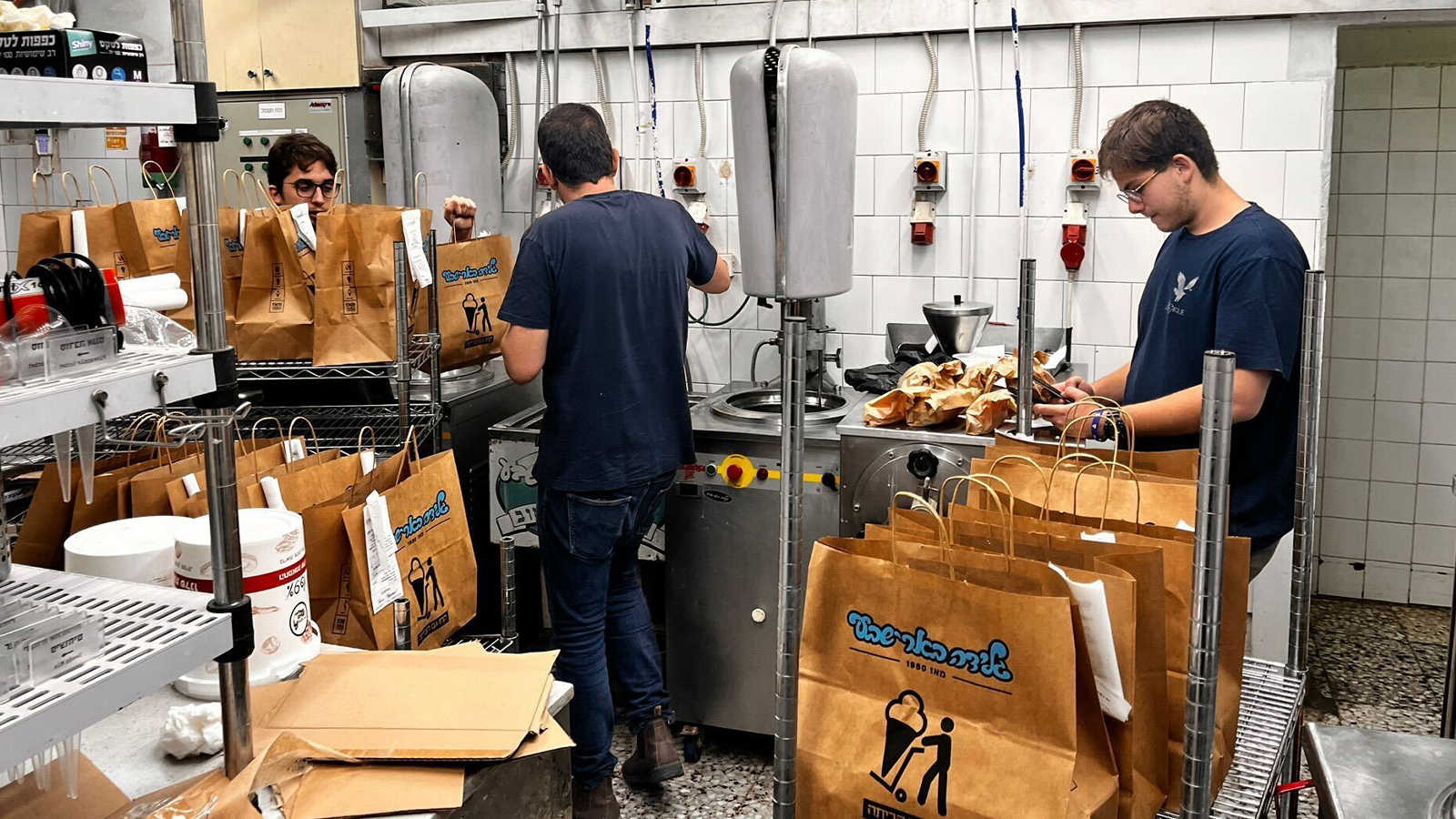Among messages about running to bomb shelters and frantic refrains of “kulam beseder?” — “Is everyone ok?,” my aunt shares a moving picture in our family WhatsApp group. My cousin, Yuli, is packing up boxes of ice cream and goodies for people on the frontline.
Over 70 years ago, my great-grandmother, a Holocaust survivor, started selling ice cream in the Israeli desert. She named her storefront simply Glida Be’er Sheva (Be’er Sheva Ice Cream) after the southern town she settled in after the war for its dry air. Now, her great-grandchildren are giving the ice cream (still made with her original recipe) away as part of care packages in the aftermath of the biggest mass killing of Jews since the Holocaust.
The story of my uncle, aunt and cousins is both extraordinary and extremely mundane in the aftermath of Saturday’s surprise attack that led to the killing of over 1,300 Israelis to date. In the past days, restaurants and eateries are opening their doors and sharing the balm of comfort food with those affected by this harrowing war in Israel.
Perhaps the most unusual story is that of HaAchim, The Brothers, a Tel Aviv bastion that has been staunchly critical of the Israeli government, and an active part of the protests against it. After their food donations were refused for not being kosher, the two brothers who run the restaurant decided to get an emergency kashrut certification, which has allowed them to donate over 20,000 rations of food each day, by partnering with other restaurateurs.
The Nosher celebrates the traditions and recipes that have brought Jews together for centuries. Donate today to keep The Nosher's stories and recipes accessible to all.
Chef Eyal Shani, known for his affections for tomatoes and for the rousing dining experience at his NYC restaurant HaSalon, is serving up plenty of food and essentials to soldiers, working out of both of his North Abraxas and Port Sa’id restaurants in Tel Aviv. He also hosted families from the southern kibbutz Karmia at his Tel Aviv restaurant, Dvora, assuaging their grief with his fresh, mouth-watering dishes.
The meal delivery service Wolt, which many Israelis use religiously during late night munchies and busy workdays, added an option for people to send food packages to families in the south who needed it.
In Jerusalem’s Angel Bakery, which sells baked goods and breads to businesses across the country, the floor of the factory was virtually empty because most of its staff had been called for reserve duty. An impressive civilian effort worked to get volunteers to help with production so their food supply was not affected.
These stories are just a drip in the bucket, a sampling of the many incredible acts of solidarity happening in Israel every hour of every day since Saturday morning. Across the country, home cooks are firing up their kitchens, cooking up meals to send to army bases and families displaced from southern Israel. Instagram and Facebook feeds are full of solicitations for essentials with dozens and dozens of responders. One woman on Facebook raised 7,000 shekels to send rations from the kosher eatery Oh Mama, which they heavily subsidized, to a base of 280 soldiers within around two hours of posting. The beautiful Israeli — “haIsraeli ha’yafeh” — which sometimes feels like a mythical creature, is out on every street corner, trying their best to feed, and to care for, a nation that’s an entirely open wound.
Because if there’s something that our people know it is that feeding is an act of love.



